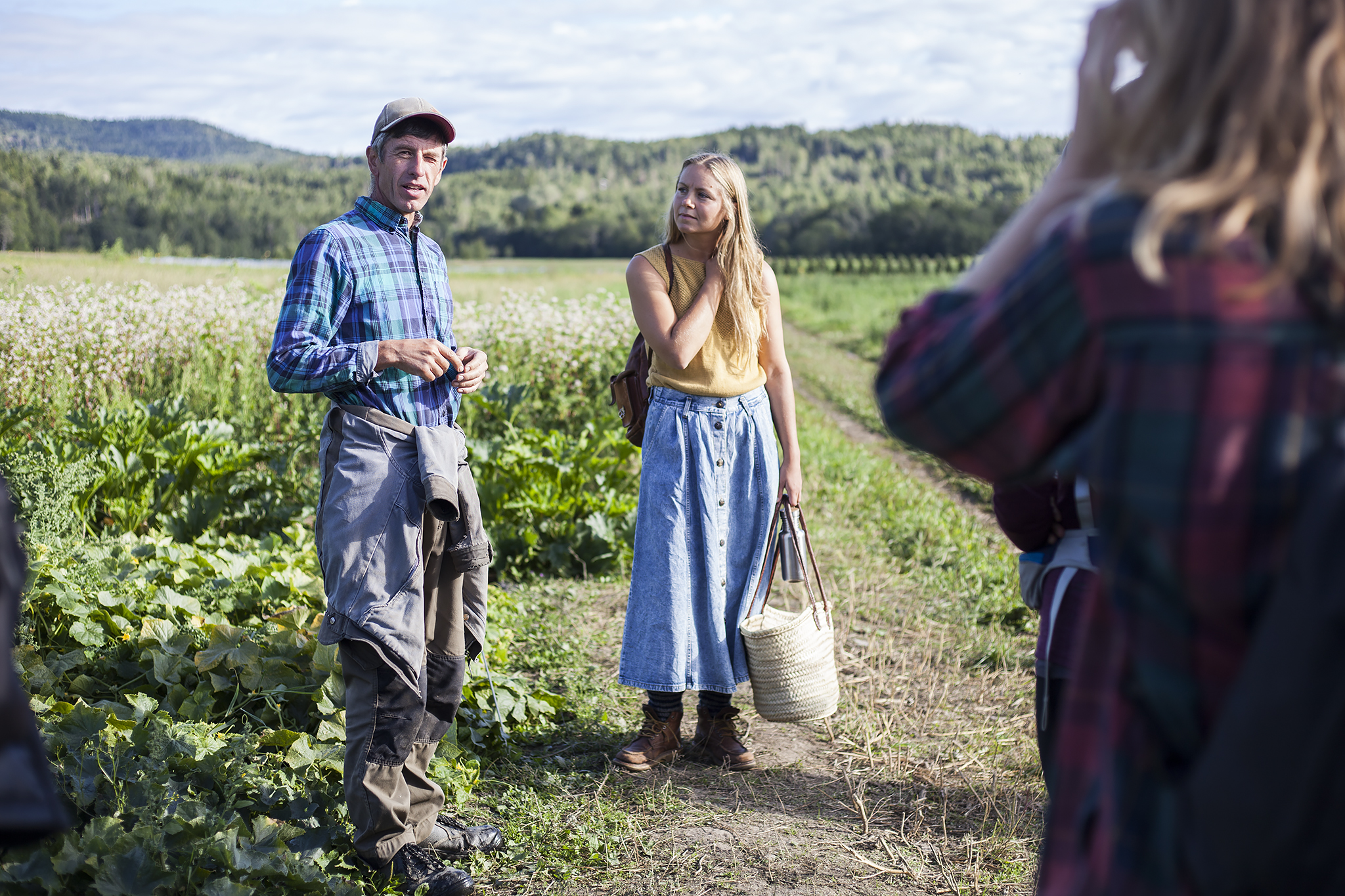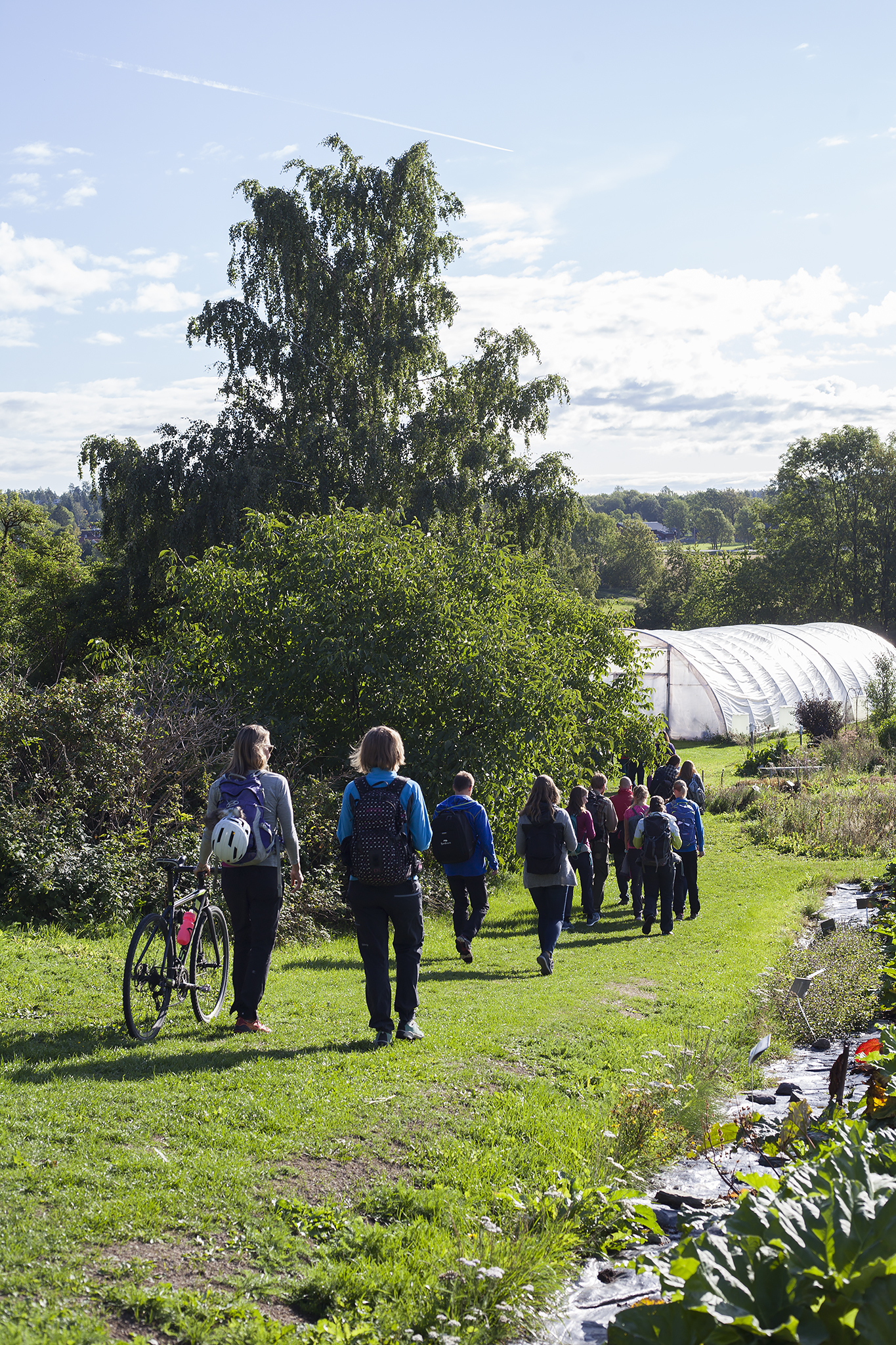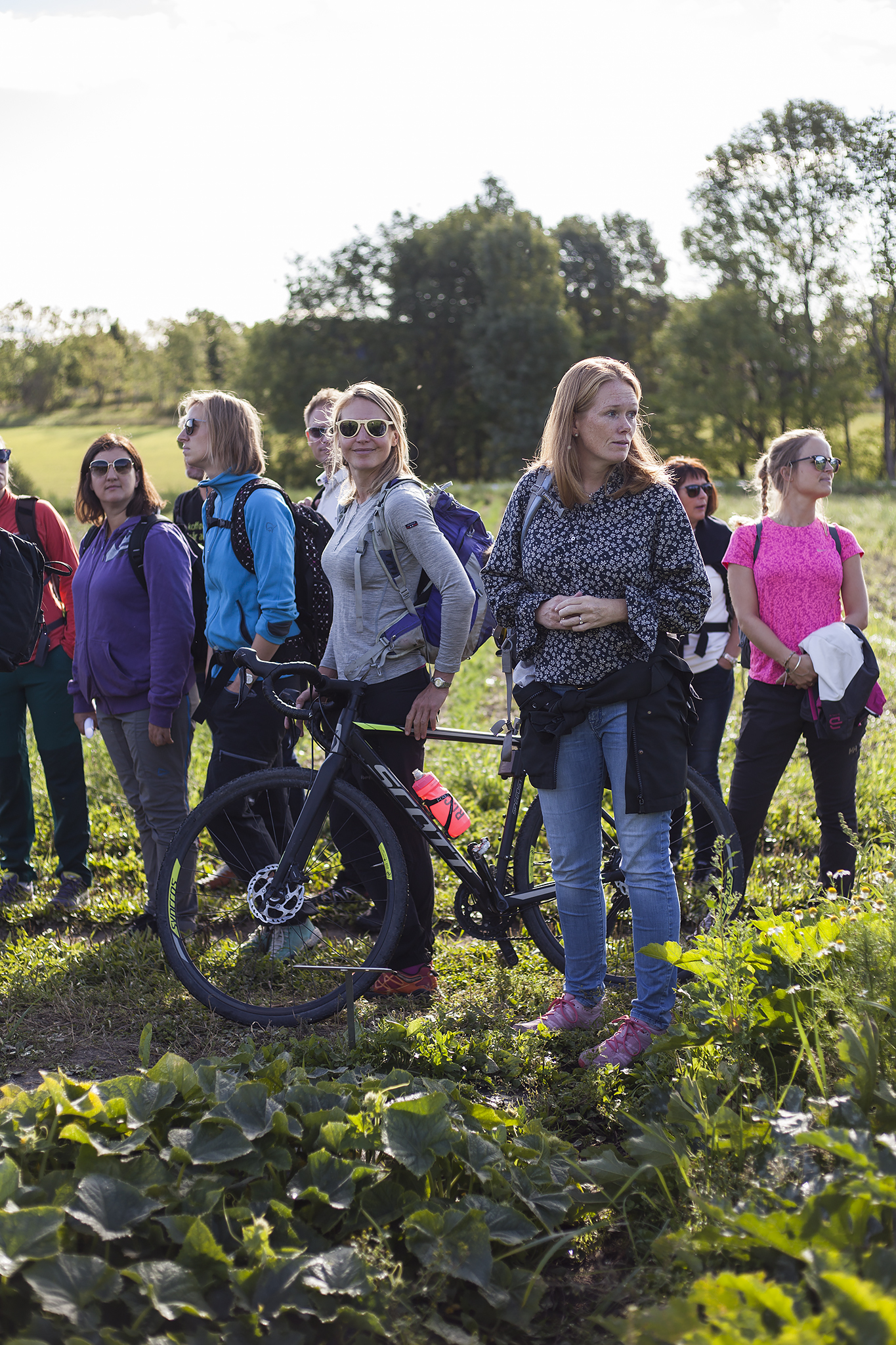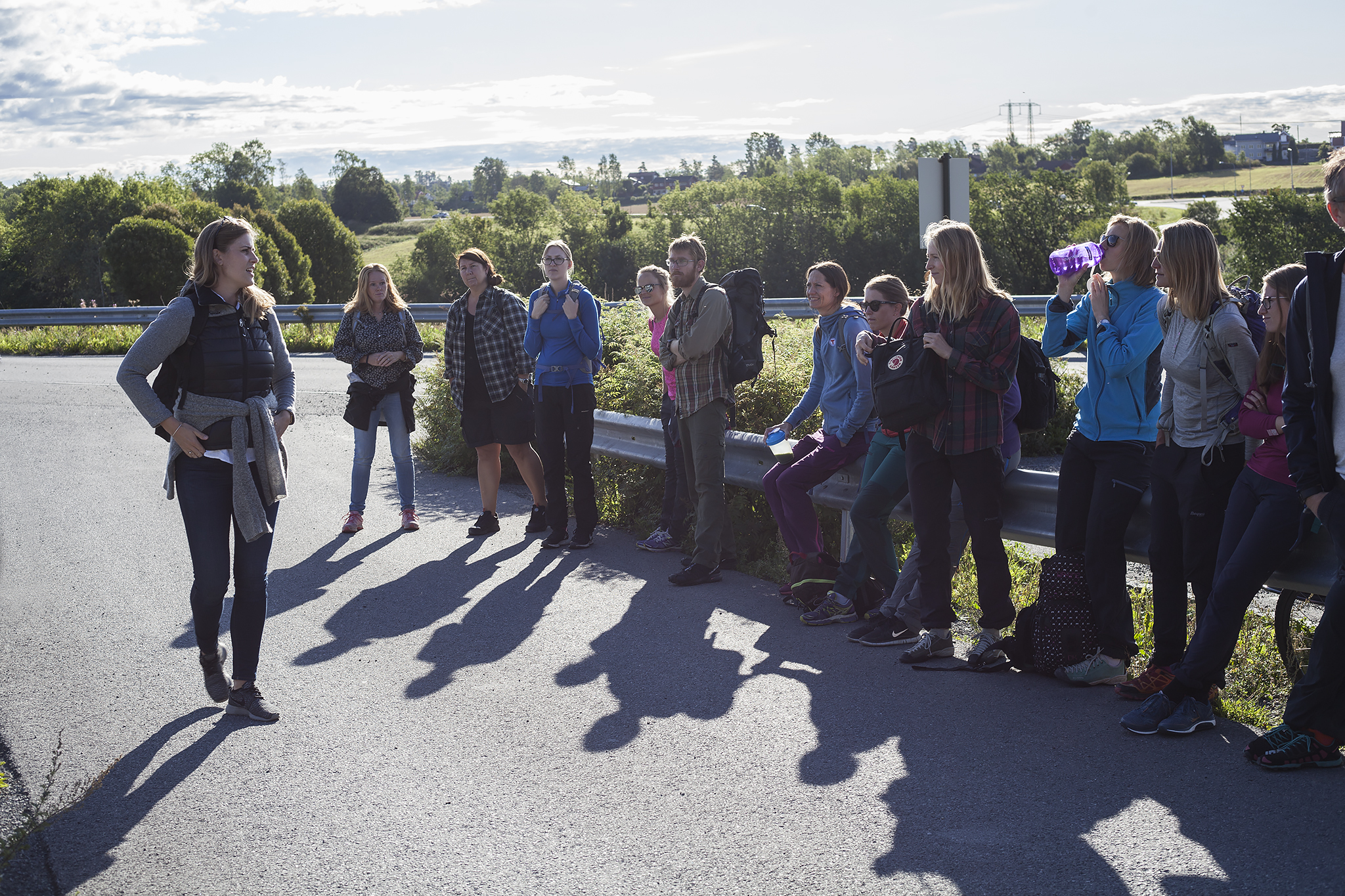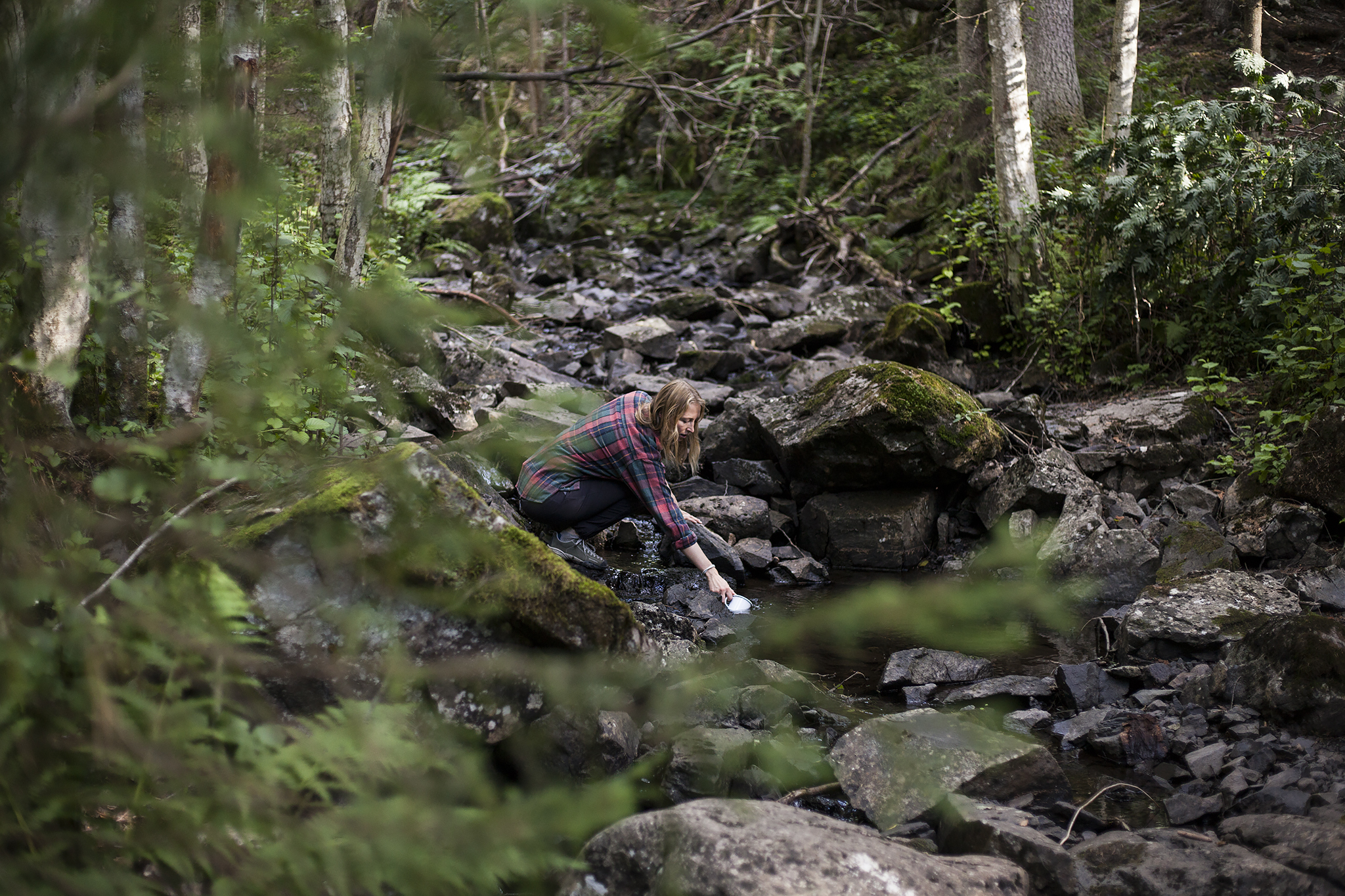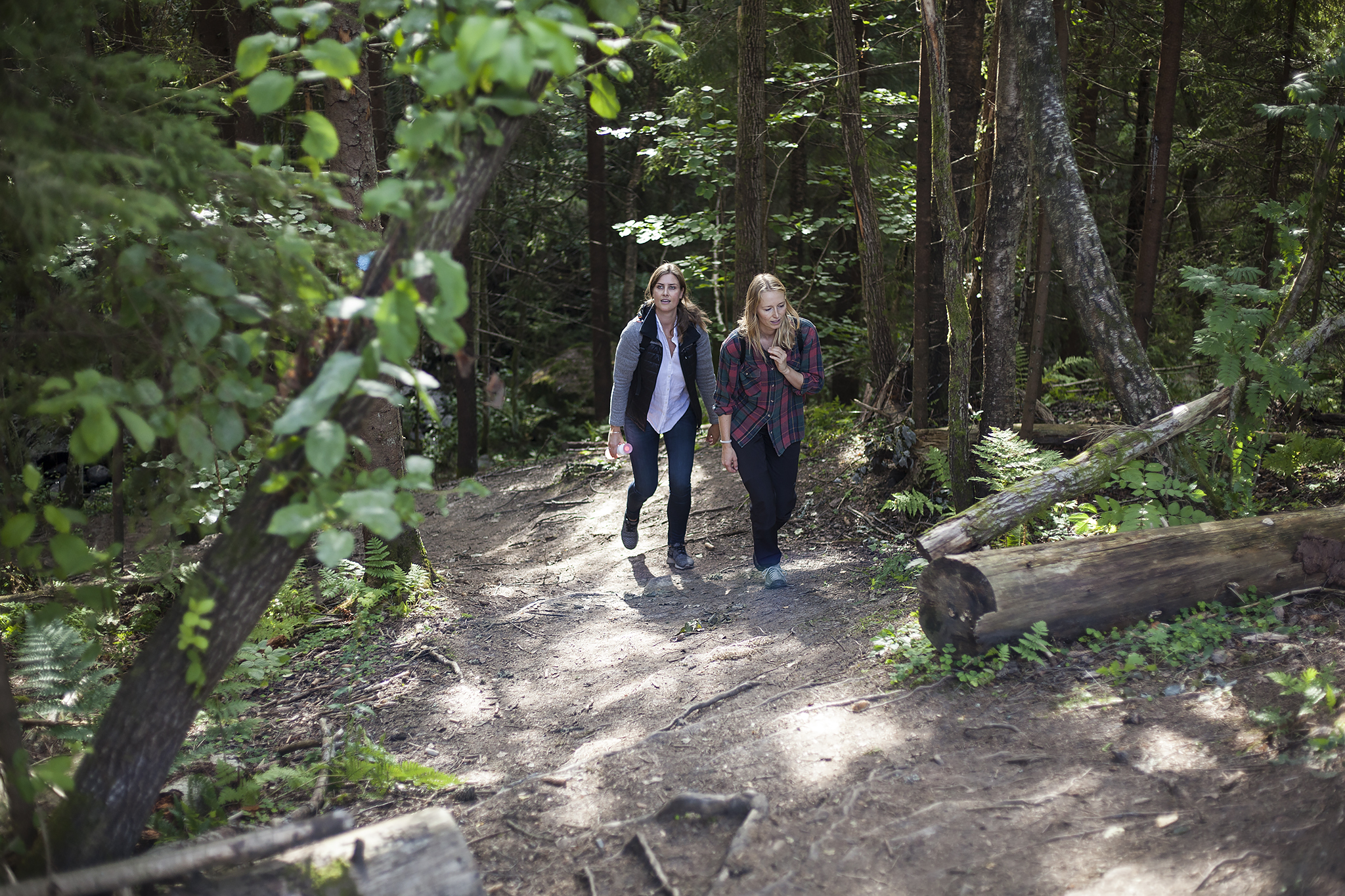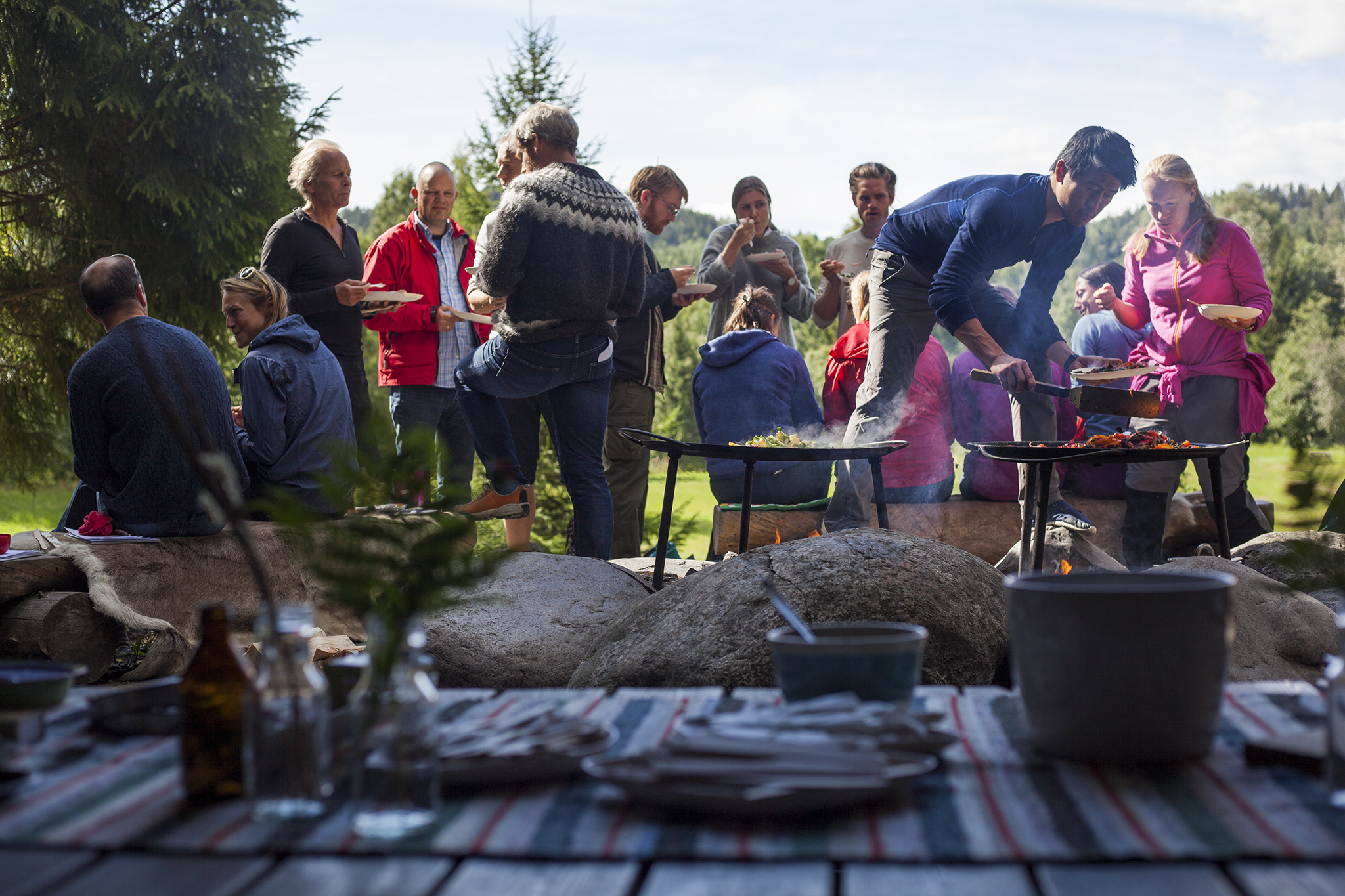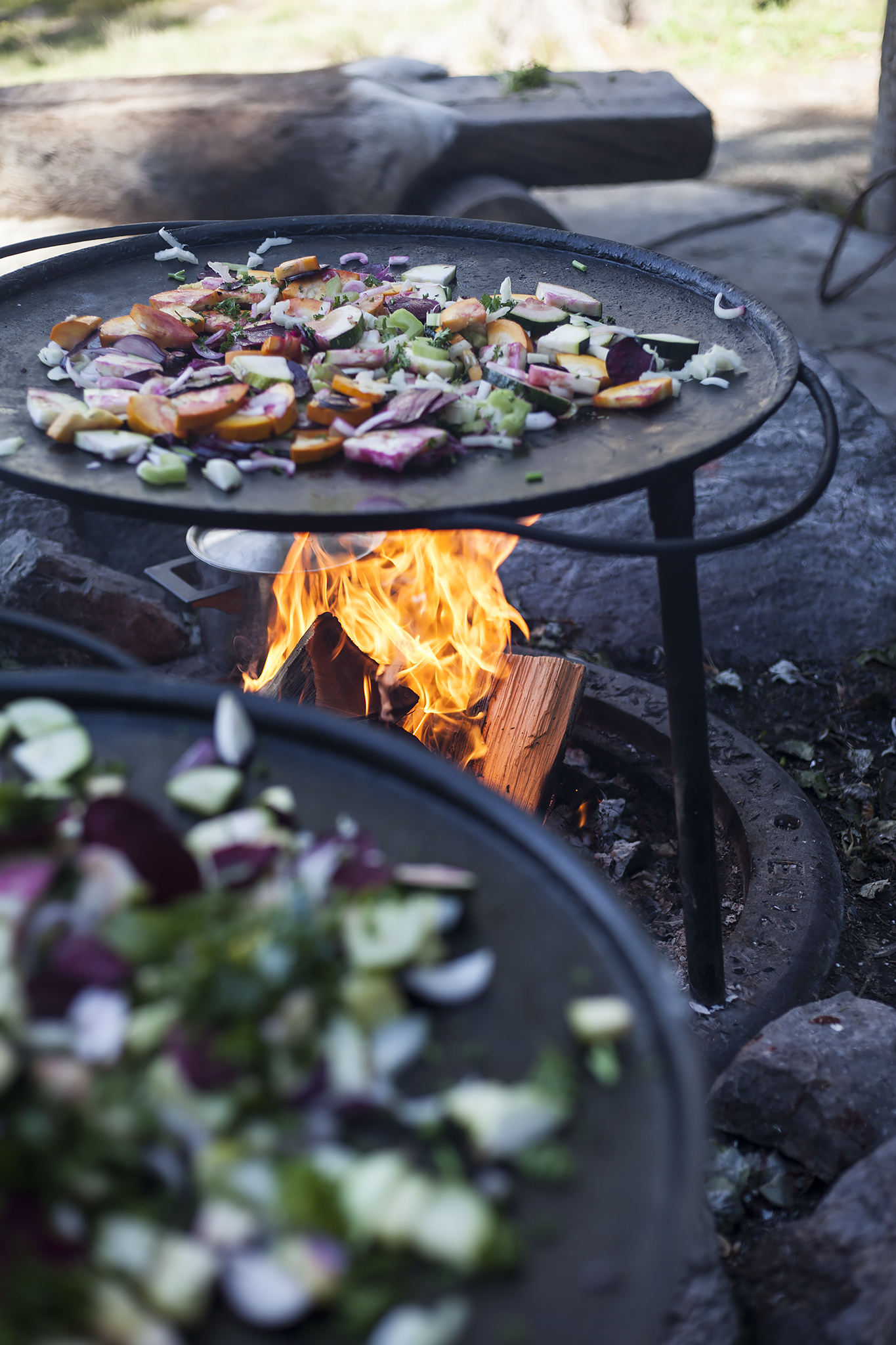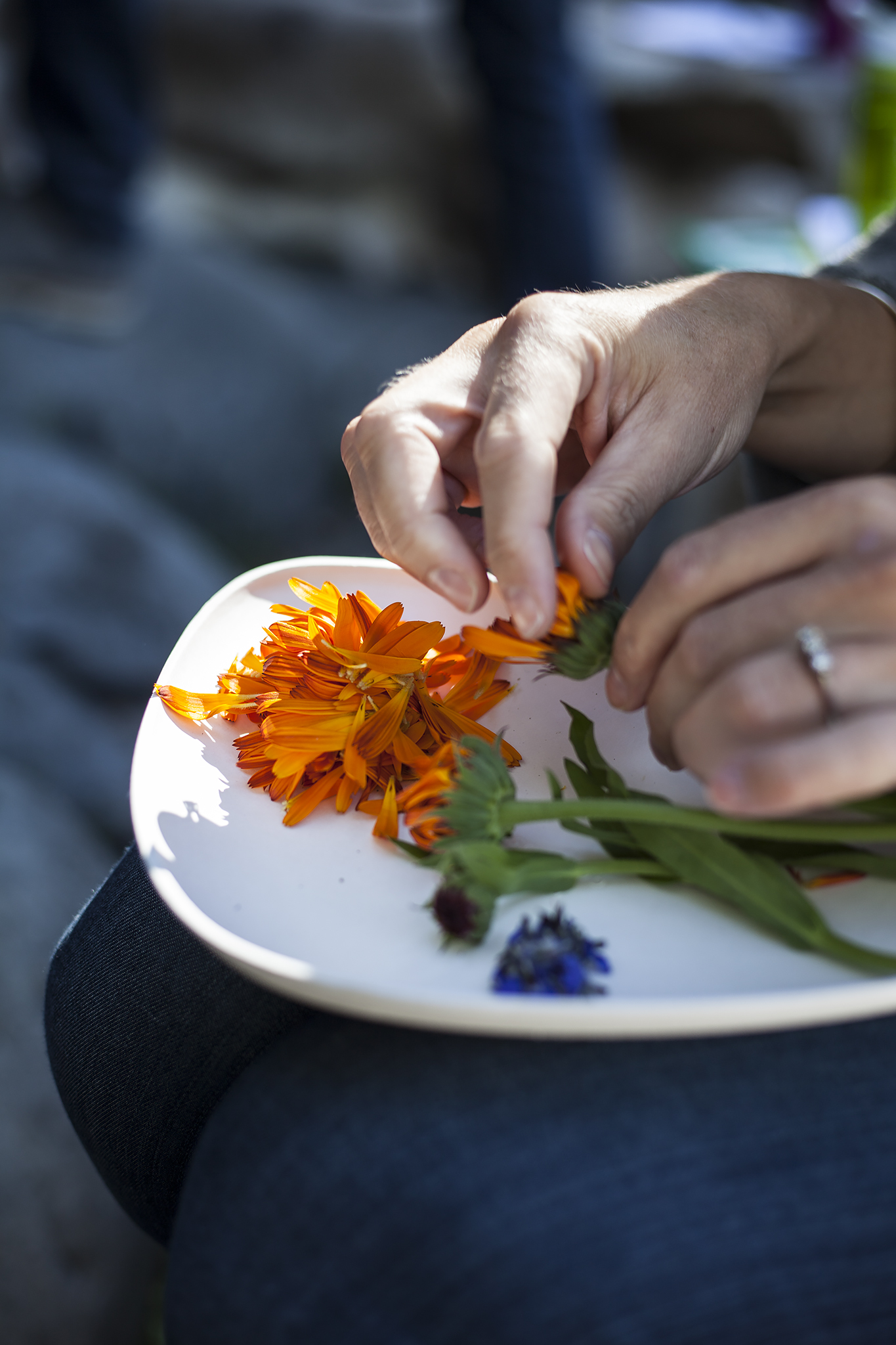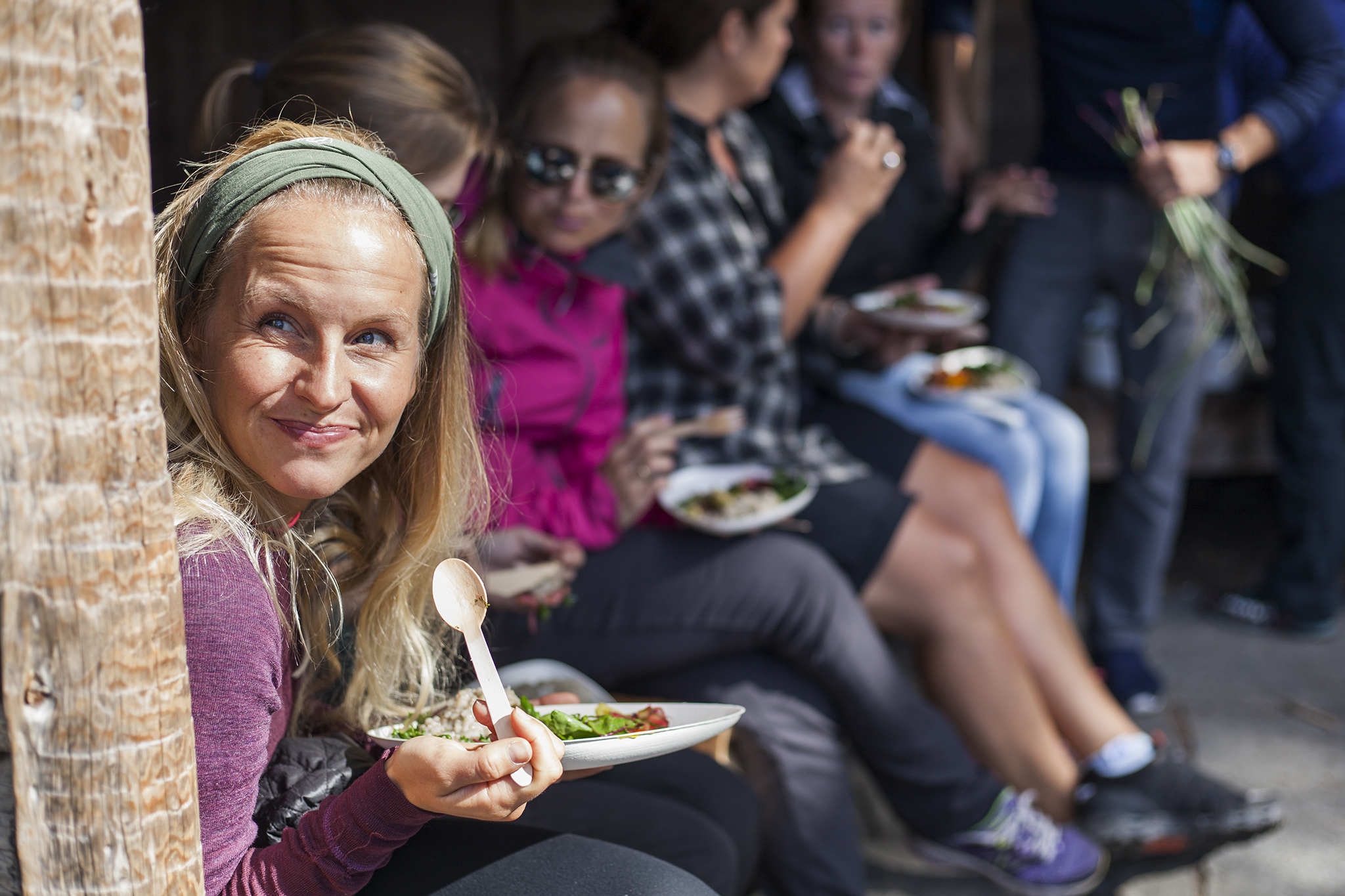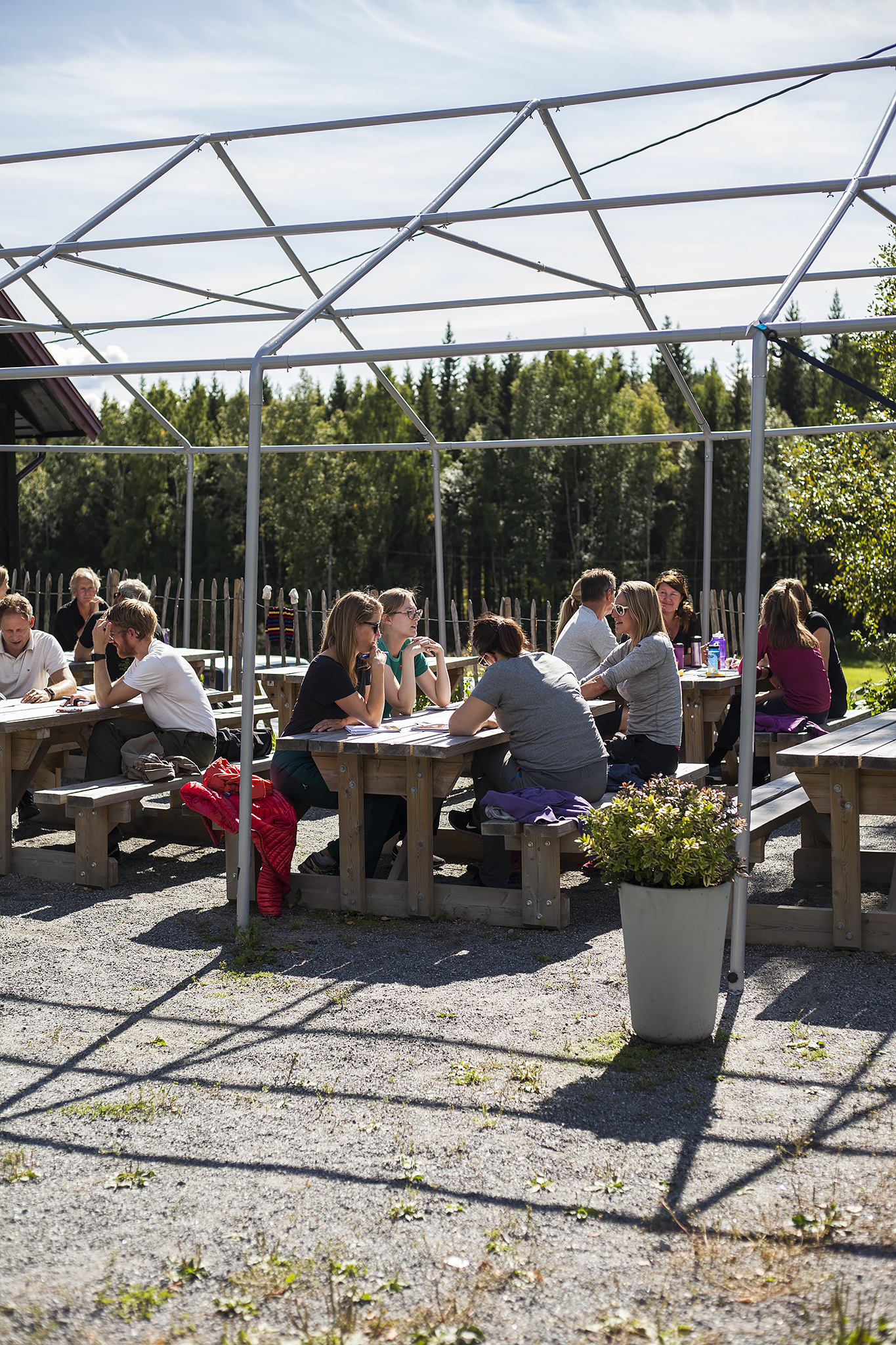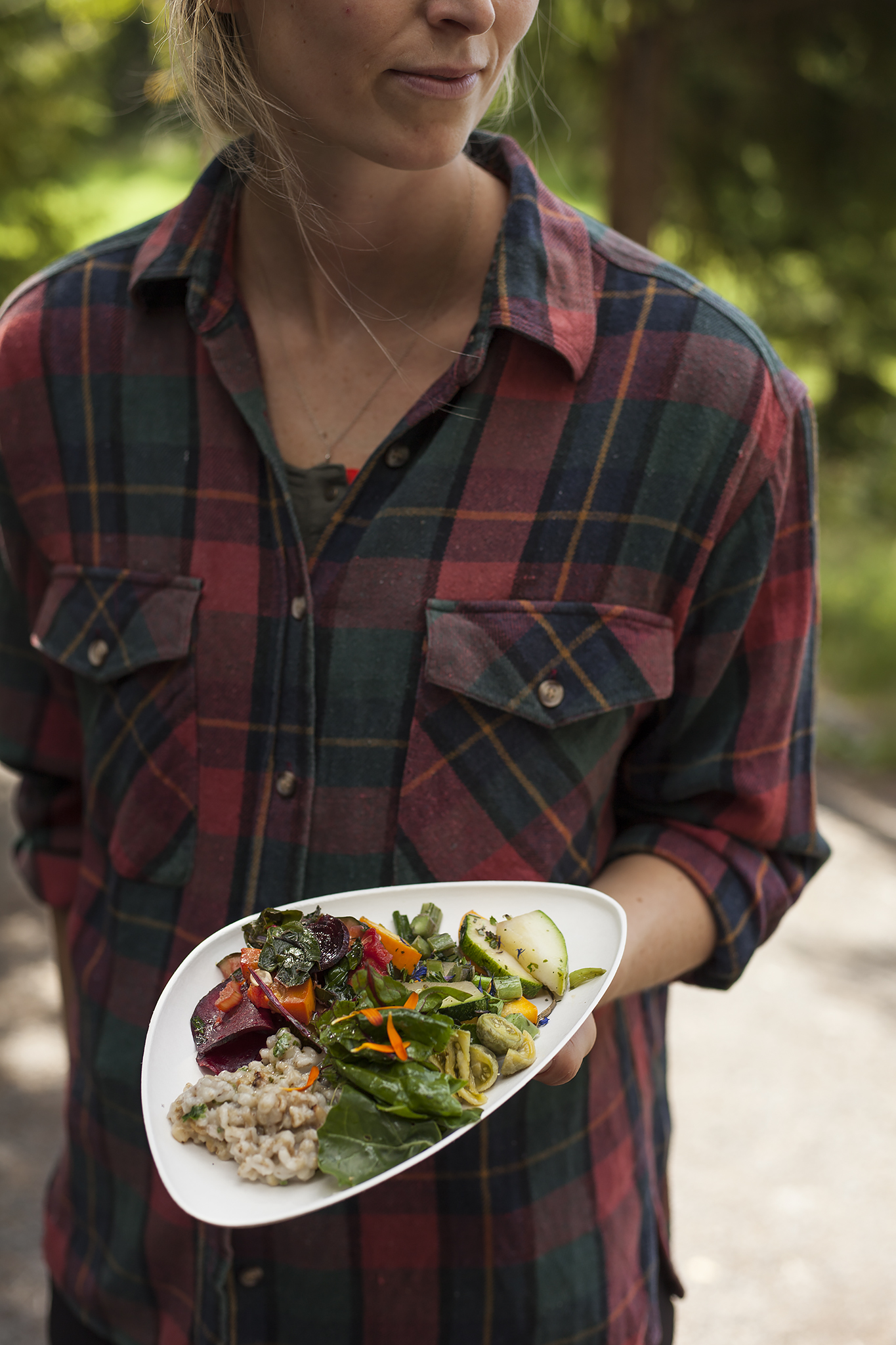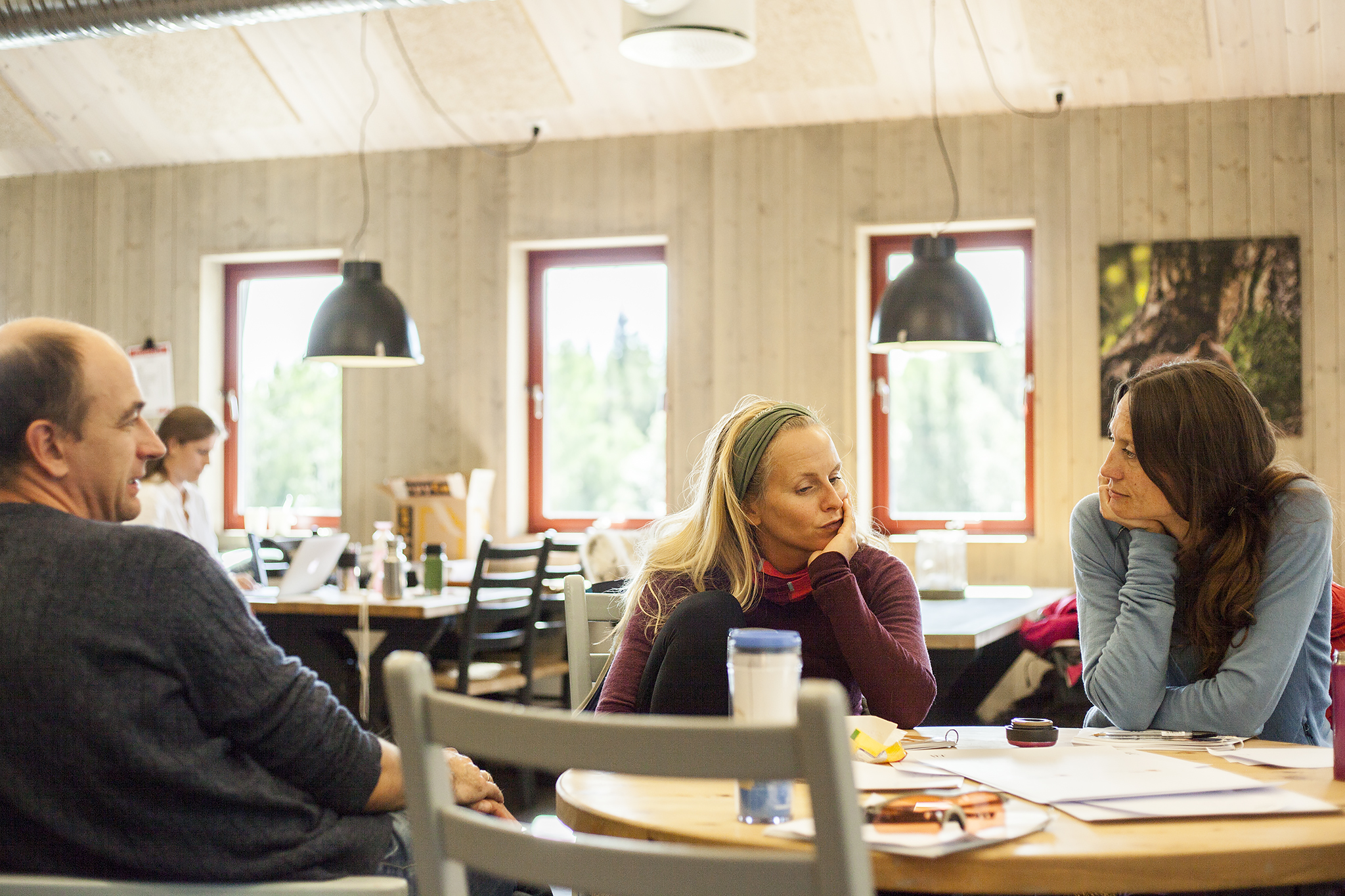Pastevent
Friluftsparadokset
— Sæteren Gård
Æra initiated the project Floke with inspiration from the UNs 17th sustainability goal. Floke is the Norwegian word for knot, and refers to the mechanisms behind societal challenges. They also act like knots; impossible to solve by pulling hard in one end only. The challenges has to untie holistically, through cooperation between multiple participants.
A 40 minute bus ride out of Oslo, followed by a 25 minute walk into the forest, doesn’t immediately sound like the most effective way to start a meeting. Still, the best way to talk about protecting nature is in it, with its effects on body and soul present, reminding us whats at stake.
We started with a visit at Øverland Andelslandbruk – the first and biggest CSA (community supported agriculture) in Norway. The farmer, Kurt Oppdøl, gave us a tour while explaining how the farm works and the principles upon which it is build. A CSA connects the producer and consumer through common harvest and risk, dialogue, involvement and a transparent economy. Through a learning process, consumers become co-producers – filled with a greater understanding, respect and empathy for nature.
While talking and getting to know each other better, we continued towards Sæteren Gård, the end destination. At one point, the trail was blocked by a tree, which must have fallen down due to the strong winds a couple of weeks earlier. From that point on, we were all invited to walk in silence. With excess sounds removed, nature seems like a sensorial surround system; sorrel on the ground, birds chirping above; the sound of leaves beneath your sole and the running water escaping through your fingers.
Shinrin-yoku can be translated into forest bathing, or skogsbading in Norwegian, and refers to a type of nature therapy. It originated in Japan in the early 1980s, and is based on spending time in nature with all senses connected, while being completely disconnected from everyday distractions. Food Studio was lucky enough to experience this in Sweden, which led to us organizing a silent dinner in Oslo and now – introducting the concept to the other participants.
Upon the arrival at Sæteren Gård, our brains and bodies were ignited. We realised that an office in Oslo could in no way prepare us better than nature just did.
All participants come from different companies dealing with the promotion of outdoor activites, friluftsliv, as we say in Norwegian. Through Friluftsparadokset, we already met several times to map the difficulties. On this particular day, focus shifted from realizing the problems to finding solutions. After three more meetings, the goal is to have business ideas or models developed and tested in small scale, ready to be launched into the marked.
Cecilie Dawes, founder of Food Studio, intern Elisabeth Fagerland and Cristina Engum, project manager at Nordic Ocean Watch, prepared a lunch based on local, seasonal ingredients from the wonderful garden of Linda Jolly at Hengsenga in Bygdøy. This year has been great for squash and mangold, and the latter was a new and curious vegetable for many of the participants. We all cut and cooked together, and enjoyed a break beneath the clear, blue sky.
Thank you Æra, for gathering us in such a beautiful and constructive way.
If you know Norwegian, we encourage you to read more about their different floke projects here. Friluftsparadokset is just one step on the way to holistically change the societal knots preventing sustainable development.
Photography by Elisabeth Fagerland
